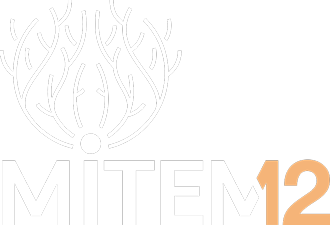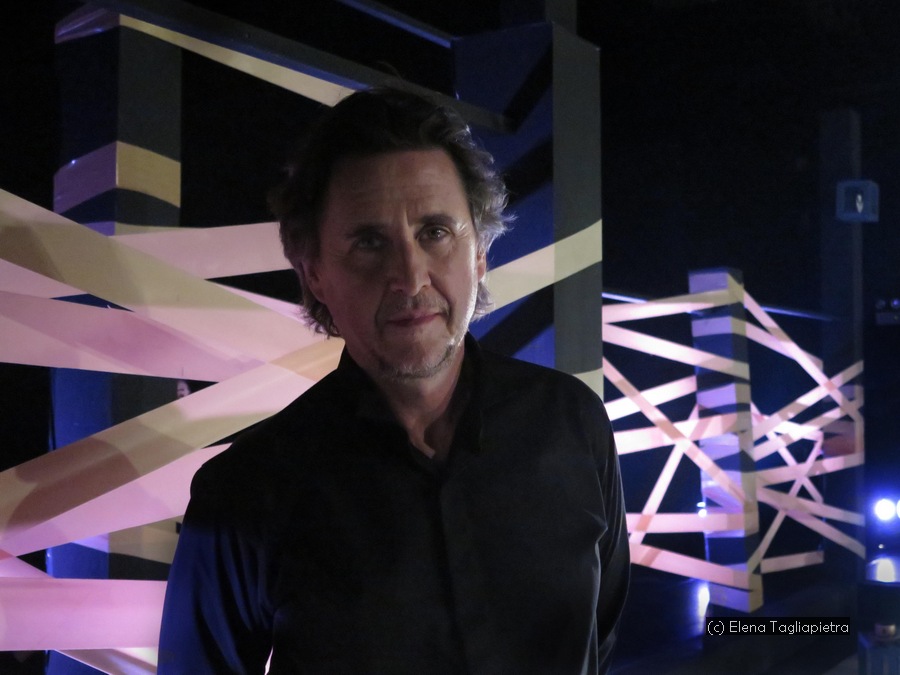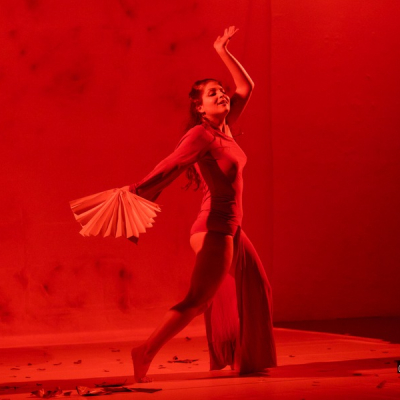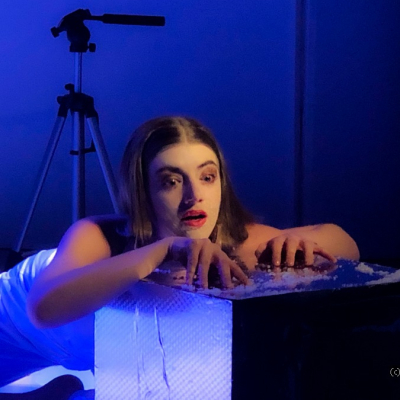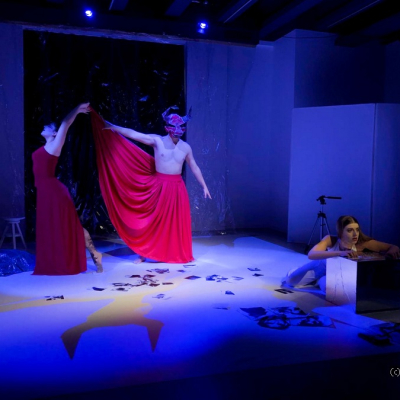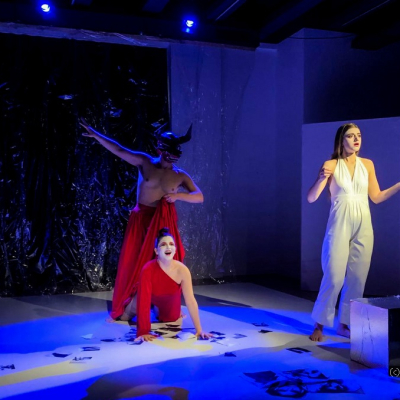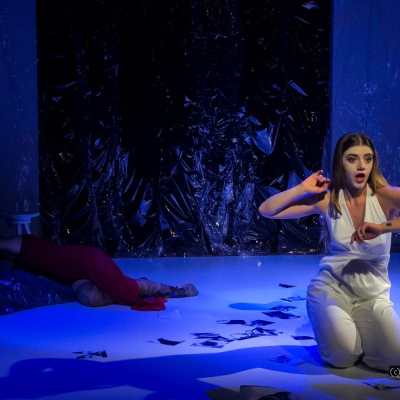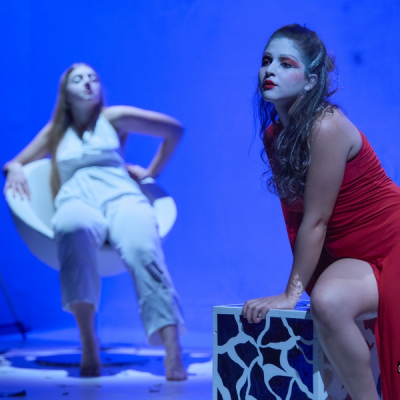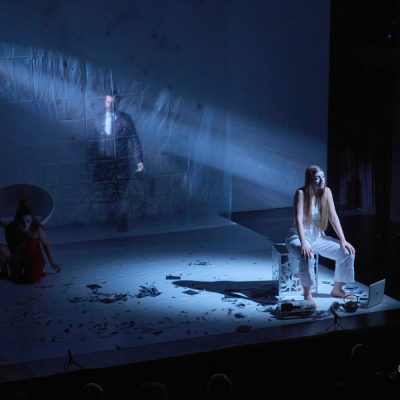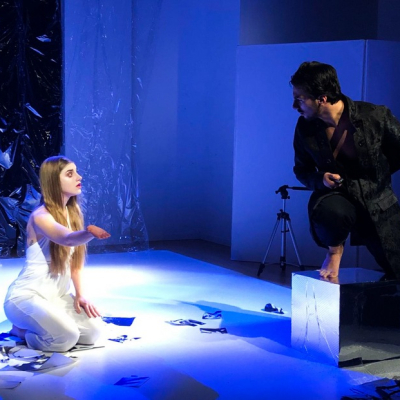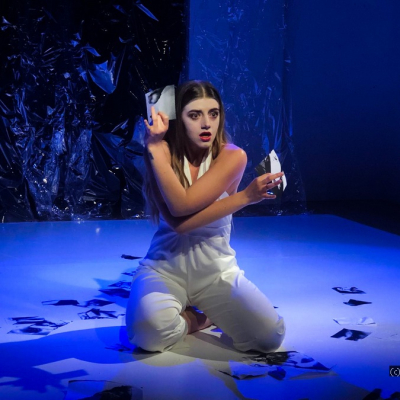Hanjo (A summer fan)
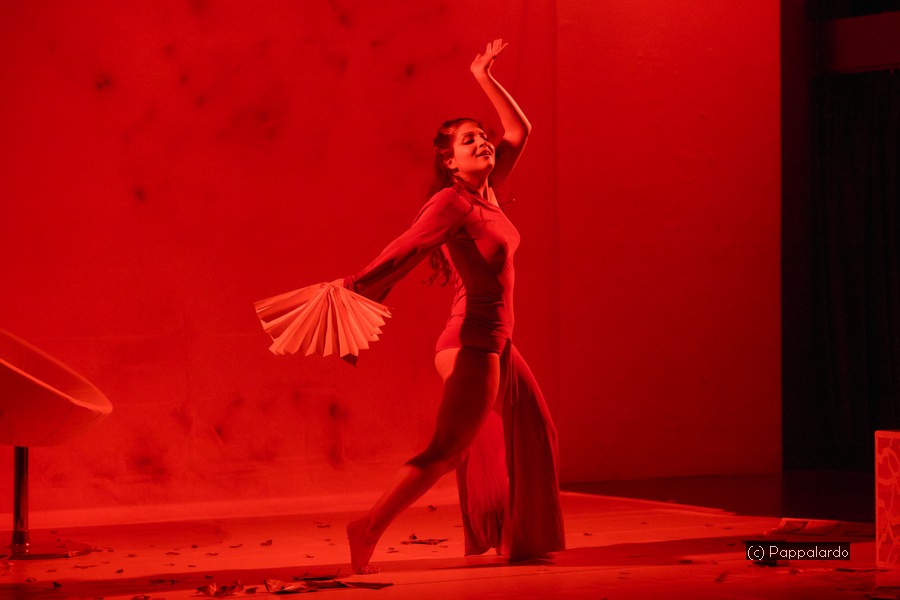
Centro Teatro Attivo, Milano, Italy
Director: Mattia Sebastian Giorgetti
Without text
1 hours, without breaks.
Under the visionary direction of Mattia Sebastian Giorgetti, multifaceted artist and associate
director of the SCOT Suzuki Company of Toga, Hanjo comes to life in a fusion of tradition and innovation. Giorgetti, known for his ability to intertwine classical elements with contemporary sensibilities, brings to the stage the tormented wait of a young artist, exploring themes of love, identity and madness with a disarming delicacy. Without limiting himself to telling a story, Mishima's text invites us to explore the deepest and most controversial folds of the human soul. Written by Mishima in 1955, Hanjo is based on a 14th-century Noh play by Motohiko Zeami, itself based on an ancient Chinese poem in which a discarded woman is described as a “hanjo,” a summer fan, who is thrown away in the fall.
"All the faces of men are dead". This is how Hanako describes the people she sees every day
coming out of the train station. A place she frequents with a single purpose, to wait. The fan that she holds in her arms, a symbol of prosperity, becomes in this messiah scene a hypothetical and unrepresentable representation on the stage in an objective manner of love in its purest form, in waiting; a possible love but whose beauty is based on pure contemplation. Enchantingly enigmatic, subtle and beautiful, Mishima's masterpiece reaches back into the deep past of ancient myth and brings into the modern world a story that is part fairytale and part surreal drama.
Actors:
Anna Germani, Elisa Bruschi, Alessandro Miano
Director: Mattia Sebastian
Makeup: Elena Tagliapietra
Assistant director: Cinzia Tropiano
Responsible for technology: Cristian Pradella
Graphics: Greta Lamiel Giorgetti
Mattia Sebastian Giorgetti
“Young people today do not have a tragic past behind them; but they live in a tiring and tormenting present that is projected onto an uncertain and precarious future. They don't have to pull the threads of a painful past to make sense of it, but they question themselves about their identity in the present and the future that awaits them.” (Yukio Mishima)
Yukio Mishima.
Born Kimitake Hiraoka (1925-1970), Mishima was the author of approximately 40 novels, as well as numerous plays (including in traditional Noh and Kabuki styles), books of short stories, and essays. He has also acted in and directed several films. Many of his works were translated into English and he was nominated three times for the Nobel Prize in Literature. Internationally he was probably the best-known Japanese writer of the 20th century.
Directory notes
Why Hanjo by Yukio Mishima, taken from “Five Modern Noh”? When I choose a theatrical or literary text to bring to the stage I hope that the author, through his compositional work, provides me with an "open field" or "universality" of themes and actions through words, energy, symbols, traditions, contemporaneity, physicality, mystery, love, terror. Mishima, both with the theater and with his immense literary production, dragged me into this "open space" of theatrical research; this happened recently with Heiner Müller (whose "Hamletmachine" and "Medea" I staged) and his texts which are an infinite collection of quotes ranging from Greek theater to the historical contradictions of the post-war period. The Noh theatre, from which Mishima starts to tell us the story of Hanjo, and the Greek theater are very different, but the matrix remains the same: the lack of compassion, the terror, the waiting, the request for justice, the 'Love. Theater remains the means to show us the dark mystery that is the human being.
